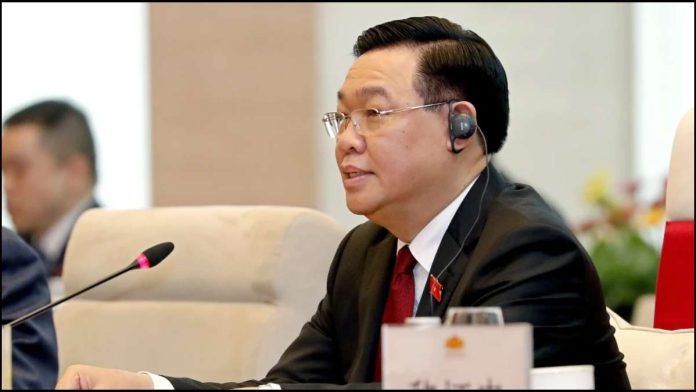Vietnam’s National Assembly dismissed another deputy prime minister for violating anti-corruption rules, extending an anti-corruption campaign launched by Nguyen Phu Trong.
Parliament accepted Le Minh Khai’s resignation on Monday, according to local media. Khai oversaw the economy and in June urged Finance Minister Janet Yellen to grant Vietnam market economy status.
According to the government website, Khai was punished for irregularities related to an investigation into the Dai Ninh resort and residential complex project in Lam Dong province. Mai Tien Dung, former head of the Government Office, was detained by police in May in connection with the investigation.
According to a 13 August statement on the government website, the Vietnam Party Secretariat ruled that the party’s government inspection unit violated regulations by approving the extension of the Dai Ninh project.
The National Assembly also sacked Deputy Prime Minister Tran Luu Quang, who becomes leader of the party’s central economic commission.
Parliament appointed three new deputy prime ministers – Foreign Minister Bui Thanh Son, Finance Minister Ho Duc Phoc, and Nguyen Hoa Binh, who was dismissed from his post as chief judge of the Supreme People’s Court of Vietnam.
Blazing furnace
An anti-corruption campaign led to the detention of numerous high-ranking officials and business executives in Vietnam. President To Lam, officially appointed as the new party chief on 3 August, stated that he would “resolutely” continue his aggressive fight against bribery.
The “blazing furnace” campaign, as Trong called it, is still popular among Vietnamese people. Due to the anti-corruption crackdown, Vietnam rose from 113th place in 2016 to 83rd last year in Transparency International’s corruption perceptions index.
However, continuous investigations slowed down the government’s work, Giang Nguyen noted.
Vietnamese businesspeople have shared a view on social media that parts of the government are paralysed by a fear of being caught up in the anti-corruption investigations.
Vietnam’s wide-ranging but opaque anti-corruption campaign is seen by some observers as a way to eliminate political rivals in a behind-the-scenes power struggle. Foreign investors “don’t know who is up and who is down in the power struggle that has been going on for over a year now,” he added.
